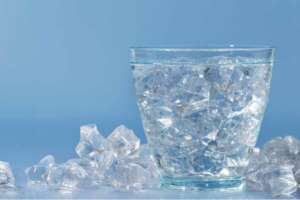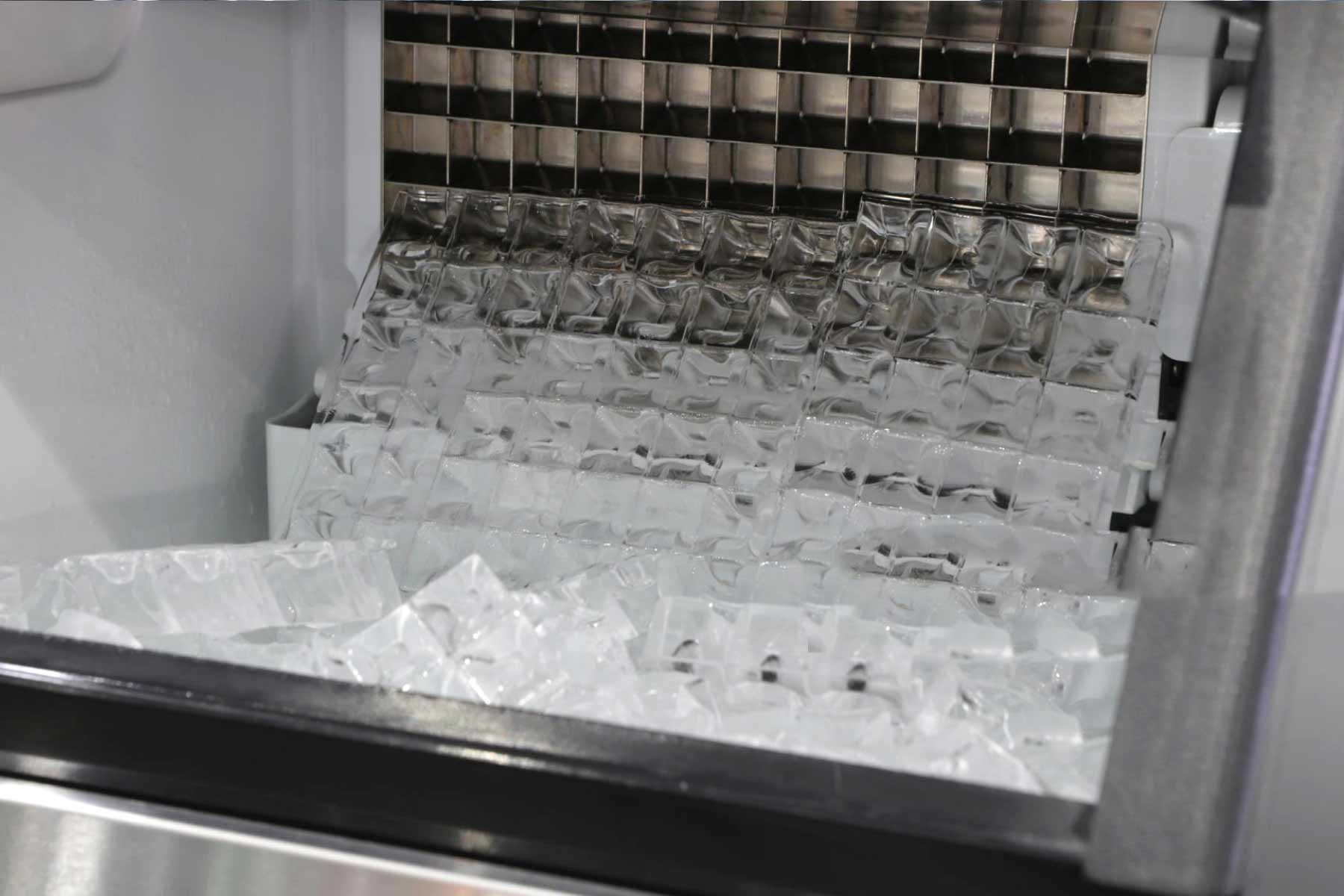For ice manufacturers, water quality directly impacts the clarity, taste, and overall quality of the ice produced. But it’s not just about aesthetics—unfiltered water can damage expensive equipment, shorten the lifespan of ice machines, and increase maintenance costs.
A high-quality water filter system for ice machine operations is critical to ensuring that ice remains pure and free from unwanted contaminants. By removing impurities like chlorine, sediment, and minerals, filtration enhances the efficiency of commercial ice maker water filter systems, leading to better-tasting ice and longer-lasting equipment.
The Impact of Water Quality on Ice Production and Equipment
The quality of the water used in ice machines has a direct impact on both the product and the equipment itself. Even treated municipal water often contains chemicals, minerals, and microscopic particles that can cause long-term damage.
- Poor water quality results in cloudy, dull ice that melts faster, affecting everything from drinks to food storage. Customers notice when their beverages taste off or when ice leaves a filmy residue behind.
- Hard water minerals and sediment clog ice machine lines, reducing efficiency and making it harder for machines to produce ice at their full capacity. Over time, this leads to higher energy bills and mechanical failures.
- The danger of unfiltered water goes beyond aesthetics—bacteria and organic compounds in untreated water can pose health risks, especially in food service settings.
Without a commercial ice maker water filter, businesses may face not only customer dissatisfaction but also frequent equipment breakdowns.
Common Contaminants and Their Effects on Ice Quality
Municipal water supplies often contain impurities that impact ice production in multiple ways:
- Chlorine & Chemicals – Leaves an unpleasant taste that affects beverages and food presentation.
- Sediment & Particles – Creates cloudy ice and can clog internal components, leading to costly repairs.
- Hard Minerals (Calcium & Magnesium) – Forms stubborn scale deposits that shorten the lifespan of ice machines.
Installing a commercial ice maker water filter eliminates these contaminants, resulting in pure, high-quality ice that enhances the customer experience.
Key Benefits of Specialized Water Filtration for Ice Machines
Investing in a water filter system for ice machine operations provides multiple advantages:
- Crystal-Clear Ice – Filtration removes impurities that cause cloudiness, producing visually appealing ice.
- Improved Taste & Odor – Eliminating chlorine and other chemicals results in ice that doesn’t alter the flavor of drinks or food.
- Extended Equipment Lifespan – Preventing scale buildup and clogged lines helps ice machines run smoothly for longer.
- Lower Maintenance Costs – Less frequent breakdowns mean fewer costly service calls and repairs.
By integrating water filtration for ice manufacturers, businesses can ensure consistent ice quality while protecting their bottom line.
Producing Premium Quality Ice While Protecting Equipment
A high-quality water filter for commercial ice maker systems benefits both production and equipment longevity.
- Better Ice, Better Business: Whether in restaurants, hotels, or bagged ice manufacturing, customers expect crystal-clear, odorless ice. The right filtration system ensures every batch meets premium standards.
- Preserving Expensive Equipment: Ice machines represent a significant investment, and unfiltered water can lead to early equipment failure. By using a water filter system for ice machine operations, manufacturers reduce wear and tear, keeping machines running at peak performance.
Filtration isn’t just an upgrade—it’s a necessity for businesses that rely on consistent, high-quality ice production.
Optimal Filtration Technologies for Commercial Ice Production
 Not all filtration systems are created equal. The most effective solutions for ice production include:
Not all filtration systems are created equal. The most effective solutions for ice production include:
- Carbon Filtration: Removes chlorine, organic compounds, and odors, improving ice taste and appearance.
- Sediment Filters: Trap dirt, sand, and rust to prevent machine clogs.
- Scale Inhibition Systems: Prevent mineral buildup that reduces machine efficiency and lifespan.
- Reverse Osmosis (RO): Removes nearly all dissolved solids, providing the purest possible ice.
Selecting the right filtration method depends on water quality and production needs. A commercial water filter expert can analyze your water and recommend the best system for your facility.
Choosing Between Standard Filtration and Reverse Osmosis
For most ice manufacturers, standard filtration (carbon and sediment filters) effectively removes common impurities like chlorine and sediment. However, some operations require more advanced filtration.
- A commercial ice maker water filter with carbon filtration is ideal for removing chlorine and improving taste in areas with relatively clean water.
- A water filter for commercial ice maker using reverse osmosis is necessary for locations with high dissolved solids, ensuring ultra-pure ice that meets the highest quality standards.
The choice depends on water conditions and the level of purity required for the final product.
Selecting and Maintaining the Right Filtration System
Choosing the best water filter system for ice machine production requires careful consideration of:
- Water Quality: A professional water test determines which contaminants need to be removed.
- Production Volume: Higher-capacity ice makers may require more robust filtration solutions.
- Maintenance & Costs: Some systems have a higher upfront cost but provide long-term savings by reducing repairs.
Regular maintenance is essential for peak performance. A commercial ice maker water filter should be replaced on schedule to prevent clogging and bacterial buildup.
For expert recommendations and ongoing support, contact a commercial filter service to ensure your system is properly installed and maintained.
The Long-Term Value of Quality Water Filtration
When it comes to ice manufacturing, water filtration is not just about improving ice—it’s about protecting your business from unnecessary costs and operational setbacks. Think of it as an insurance policy for your equipment and your reputation. Ice that looks and tastes better keeps customers satisfied, while a properly maintained machine lasts longer and runs more efficiently.
The reality is, cutting corners on water filtration leads to higher expenses down the road. Frequent machine repairs, increased energy consumption, and customer complaints about poor ice quality can all add up. But with the right water filter system for ice machine operations, you can keep production smooth, costs predictable, and customer satisfaction high.
A commercial ice maker water filter is an investment that pays off by reducing waste, maintaining consistency, and ensuring every cube meets the highest standards. If you’re ready to optimize your ice production, now is the time to act. Contact Metro Water Filter of the South for a consultation and take the first step toward better ice and better business.



